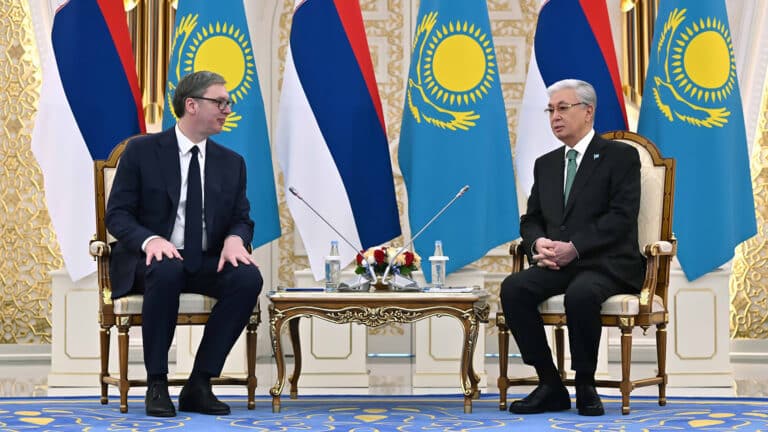
Kazakhstan is considering introducing a new mandatory payment for oil companies — equal to 1% of hydrocarbon production costs or investments — to finance research and development (R&D), according to the Energy Monitor fund. The proposed annual obligation is projected to generate about $30 million.
«A new tax may be introduced for oil-producing companies in Kazakhstan: 1% of R&D obligations may be redirected directly to the state budget. Apparently, due to a lack of tangible results [on the part of producers], the government has decided to centralize these funds,» Energy Monitor stated.
Nurlan Zhumagulov, head of Energy Monitor, noted that the obligation to allocate 1% of investments to R&D was introduced several years ago. However, many oil companies have diverted those funds toward other internal needs.
«Over the years, we’ve failed to advance meaningful R&D in the oil sector. Companies classified seismic exploration as R&D or funneled money into affiliated educational institutions (for example, South Oil took that route),» the organization explained.
The publication cited the Center for BioEnergy Research as one of the few successful examples, highlighting its work to improve oil recovery in projects such as Zhalgyztobe, Tabynai, PetroKazakhstan Kumkol, Turgai, Karazhanbas, Ozen and Aidan Munay. The center is collaborating with the North Caspian Operating Company (NCOC) on the Kashagan field.
Out of approximately $30 million allocated annually for R&D, nearly half comes from companies involving state-owned enterprises KazMunayGas and QazaqGaz. These companies direct their contributions through Samgau, a fund under the state holding Samruk-Kazyna that supports R&D initiatives.
According to Energy Monitor, the China National Petroleum Corporation (CNPC) group of companies has also established several entities accredited by Kazakhstan’s Ministry of Science and Higher Education to manage these funds but has never publicly disclosed the outcomes of their projects.
If the new tax is implemented, subsoil users may face challenges. Under the current R&D support arrangement, companies can claim deductions on R&D expenditures at a rate of approximately $0.30 per $0.20 spent. Zhumagulov argued that it would be more effective to redirect R&D funds to the socio-economic development of oil-producing regions. This could reduce the social pressure on mining companies and improve public perception of the extractive industry in local communities.
In February 2023, the Ministry of Energy, in collaboration with the Ministry of Science and Higher Education, proposed that hydrocarbon and uranium producers coordinate their R&D spending with the sector’s scientific and technical advisory council.













